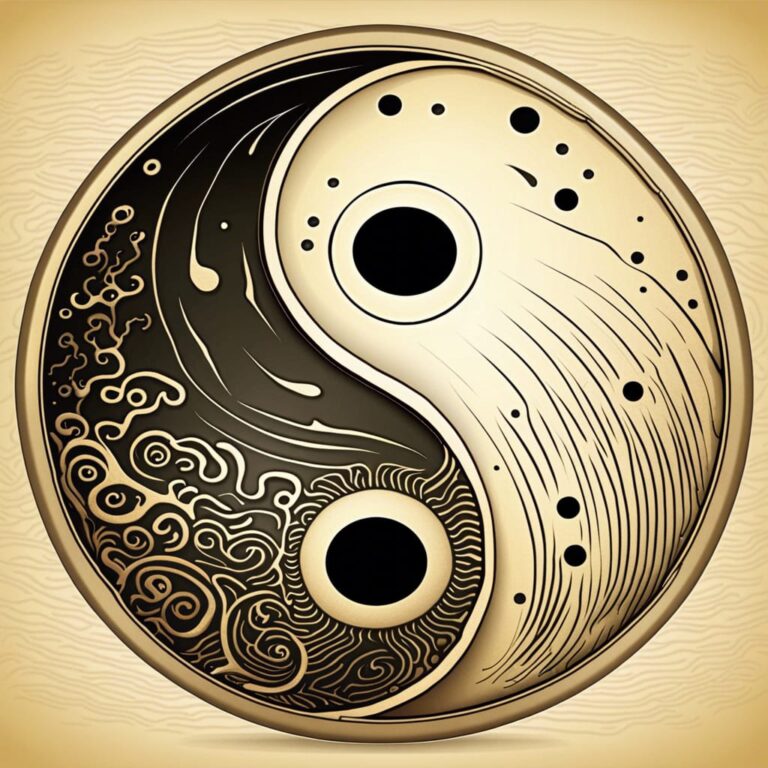
In the realm of philosophical thought, two contrasting worldviews have captivated minds for decades: Absurdism and Nihilism. Both philosophies explore the inherent meaninglessness and existential dilemmas of human existence, but they propose divergent paths for navigating the complexities of life.
While Nihilism often plunges individuals into a pit of despair and a nihilistic void, Absurdism offers a more empowering and life-affirming perspective.
🔕Introduction
What is the meaning of life? This is a question that has been asked throughout history, but it still remains unanswered. Is there a point to all this or are we just going through the motions day after day with no real purpose?
These are the types of questions that absurdist philosophers like Albert Camus and Jean-Paul Sartre sought to answer.
History
Absurdism can be traced back to the French philosopher Albert Camus, who wrote about the human condition and the inherent meaninglessness of life. Nihilism, on the other hand, has its roots in the German philosopher Friedrich Nietzsche, who argued that traditional values and beliefs are no longer relevant in the modern world.
🧱Foundations of Nihilism
Nihilism, as a philosophical concept, holds that life lacks any objective meaning, purpose, or intrinsic value. According to nihilistic thought, human existence is ultimately futile, and the universe is devoid of any inherent significance. This bleak worldview posits that all human endeavors, moral values, and cultural constructs are ultimately baseless and without ultimate merit.
Consequently, nihilism often leads to a profound sense of existential despair, as it strips away any hope or sense of direction.
🍷Essence of Absurdism
On the other hand, Absurdism, as developed by the renowned philosopher Albert Camus, embraces the inherent absurdity and meaninglessness of existence while advocating for the pursuit of personal meaning and purpose.
Absurdism acknowledges that the universe may lack a higher purpose or ultimate truth, but it emphasizes the importance of creating subjective meaning in the face of this absurdity. Camus argues that even though life is inherently irrational and devoid of predetermined significance, individuals can find meaning through the act of rebellion against absurdity.
Vs Existentialism
Absurdism is often seen as a response to existentialism, which is another philosophical movement that explores similar themes.
Existentialists also believe that life is meaningless, but they tend to focus on the negative aspects of this belief. For example, they might say that life is meaningless because we are all going to die in the end and everything we do is ultimately pointless. Absurdists, on the other hand, would say that life is meaningful precisely because it is so short and fragile. They believe that we should make the most of every moment and not take anything for granted.
First Impressions
At first glance, absurdism might seem like a depressing philosophy with nothing to offer. However, many people have found solace in its teachings. If you feel like you’re struggling to find meaning in your life, absurdist ideas might give you some comfort.
These philosophers believed that life was ultimately meaningless, but they also believed that we could find joy in spite of this. In other words, they believed that the best way to live was to embrace the absurdity of existence and make the most of every moment.
🔐Key Differences
Absurdists believe that even though life may be meaningless, we should still try to live it to the fullest and find happiness where we can. Nihilists, on the other hand, believe that because life is meaningless, we might as well give up and stop trying altogether.
Embracing Personal Responsibility
One significant advantage that Absurdism holds over Nihilism is the notion of personal responsibility. Nihilism often leads to a sense of nihilistic passivity, where individuals perceive no reason to take responsibility for their actions or to engage in any meaningful pursuits.
In contrast, Absurdism encourages individuals to accept responsibility for their own lives and to actively seek personal fulfillment despite the inherent meaninglessness. Absurdism challenges us to make choices and create meaning through our actions, empowering us to find our own purpose and live authentically.
Celebrating the Absurd
Absurdism embraces the absurdity of existence and finds solace in it. Rather than succumbing to despair, Absurdism encourages us to embrace the inherent contradictions and irrationality of life. It teaches us to find joy and beauty in the face of the absurd, to appreciate the absurdity of our own existence, and to see humor and wonder in the paradoxes of life.
This celebration of the absurd allows us to approach life with a sense of lightness and playfulness, enabling us to navigate its challenges with greater resilience and optimism.
Connection and Solidarity
Absurdism recognizes the human need for connection and solidarity in a world that often feels meaningless. While Nihilism tends to isolate individuals, Absurdism encourages the pursuit of meaningful relationships and shared experiences. By acknowledging the shared human condition and the struggle against the absurd, Absurdism fosters empathy, compassion, and a sense of community. Through our connections with others, we can find solace, support, and the shared pursuit of subjective meaning.
Examples
One example of absurdism is the story “The Stranger” by Albert Camus. In the story, the main character, Meursault, shoots and kills a man for no reason and is sentenced to death. Meursault doesn’t seem to care about what has happened or how it will affect his life, and he doesn’t seem to have any values or beliefs that guide him through life.
This can be seen as an absurdist perspective on life since it doesn’t make much sense and doesn’t follow any traditional values or norms.
Another example of nihilism is the movie “The Matrix”. In the movie, the characters live in a world where they are completely controlled by machines. They don’t know that the world they live in is actually a simulation created by machines, and they believe that their lives are real. The movie explores the idea of what it means to exist and what happens when people lose touch with reality.
This can be seen as a nihilist perspective on life since it questions what it means to exist and what happens when people lose touch with reality.
Conclusion
In the battle of philosophies, Absurdism emerges as the victor, providing a more empowering and fulfilling approach to life compared to Nihilism.
By embracing personal responsibility, celebrating the absurd, and fostering connections with others, Absurdism offers a framework through which individuals can navigate the inherent meaninglessness of existence and find personal fulfillment. Rather than succumbing to nihilistic despair, we can choose to embrace the absurdity of life, create our own subjective meanings, and live with purpose and authenticity.
In the face of an absurd universe, Absurdism shines as a beacon of hope, reminding us that our lives are not futile but rich with the potential for personal growth and fulfillment.





